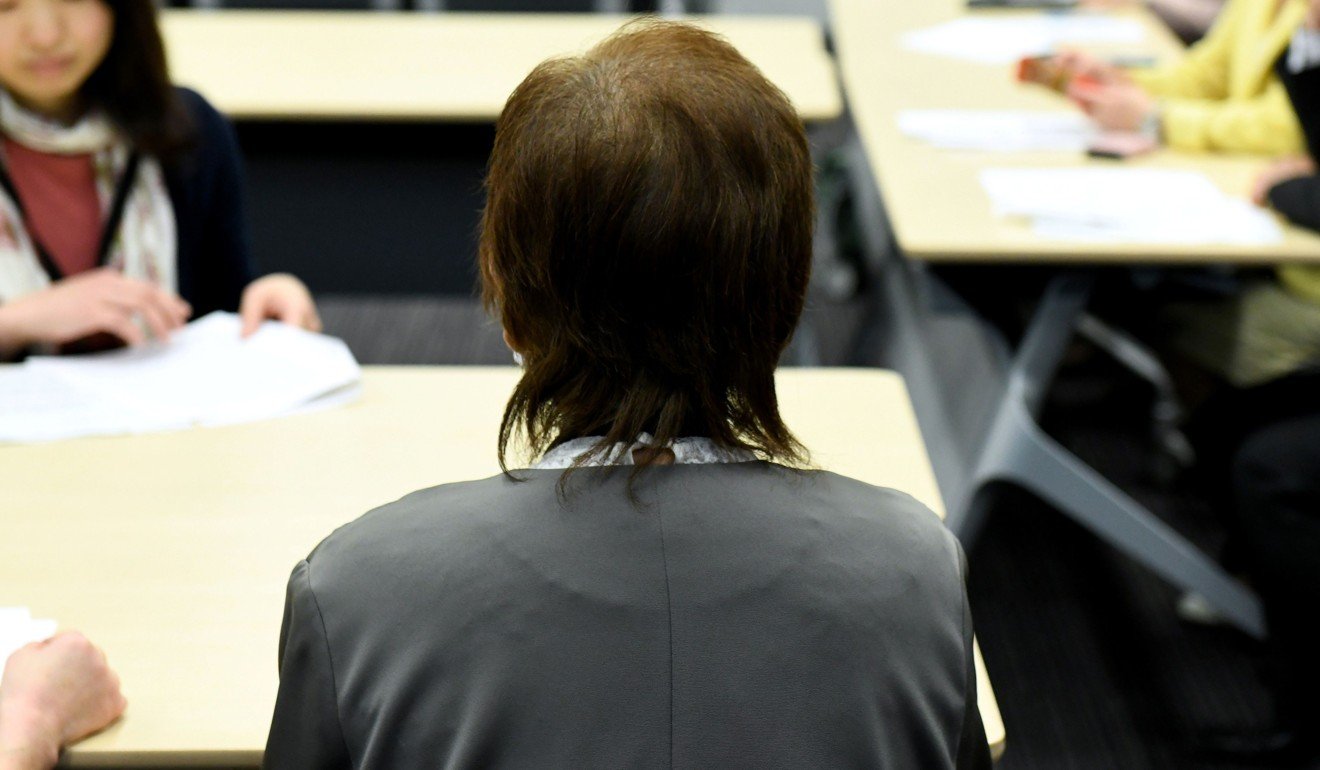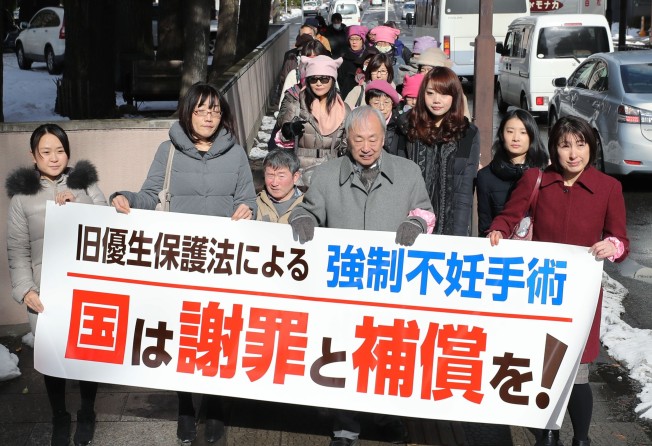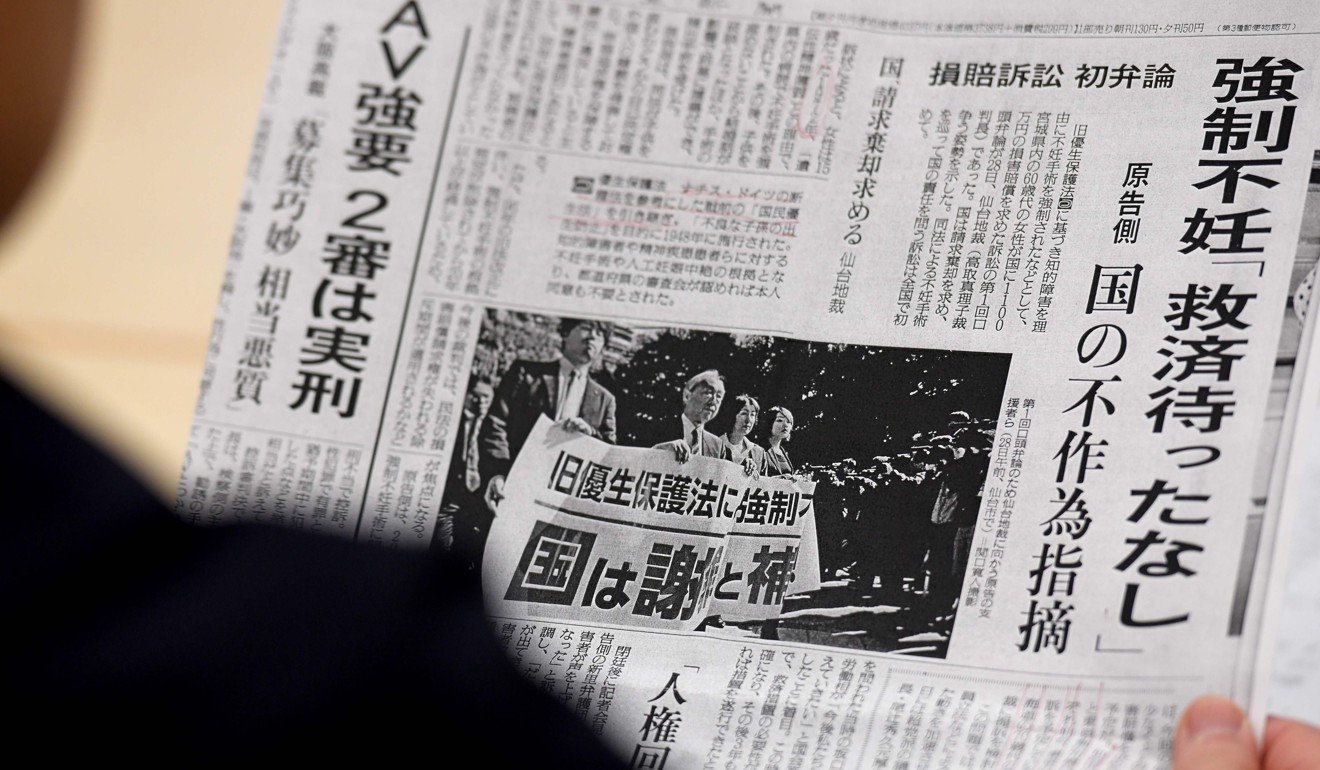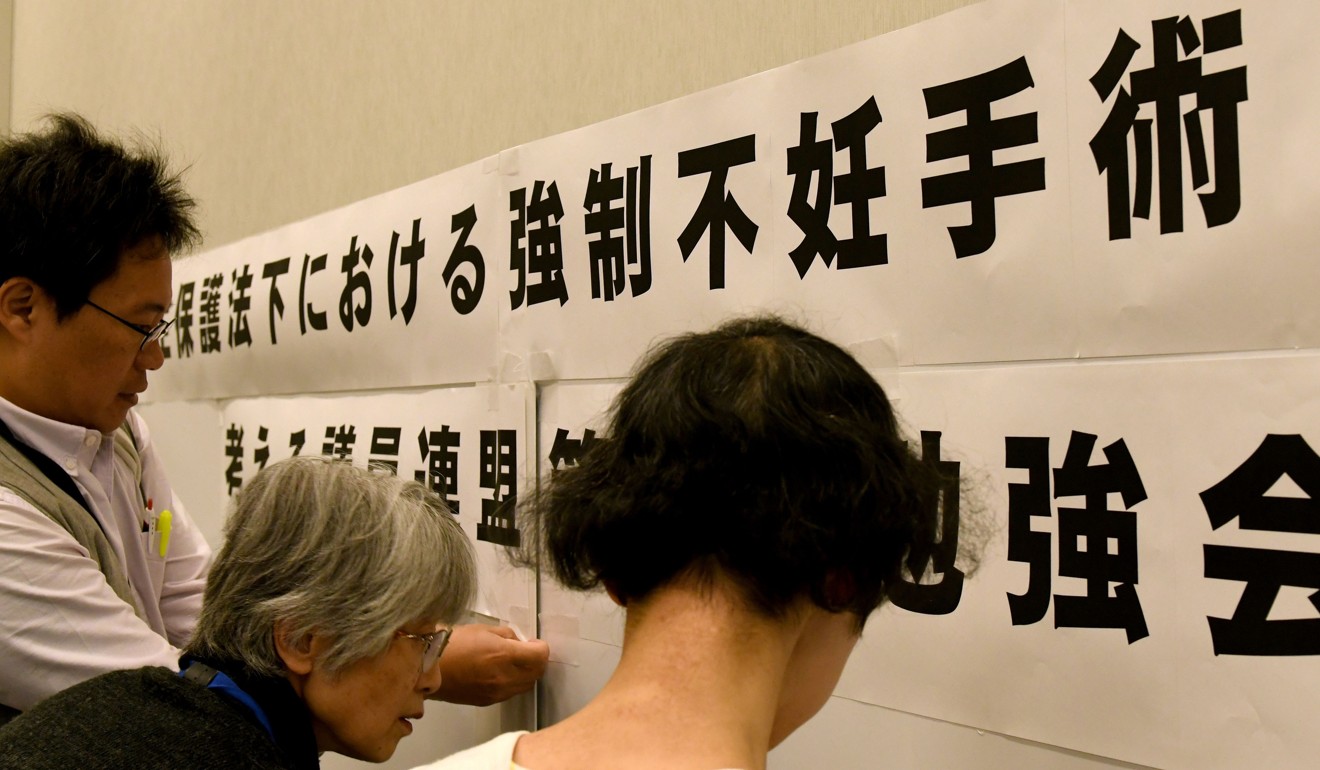
Surviving victims of historical forced sterilisation law in Japan to receive compensation and apology
- About 16,500 people, mostly women with disabilities, were targeted between 1948 and 1996 under a Japanese law that aimed to stop the birth of children described as “inferior”

Thousands of victims of forced sterilisation in Japan will finally be offered compensation for their suffering under a now-defunct eugenics law.
About 16,500 people, mostly women with disabilities, were targeted between 1948 and 1996 under a Japanese law that aimed to stop the birth of children described as “inferior”.
Surviving victims will soon receive a “deep apology” and payments of 3.2 million yen (US$28,700) under the terms of a bill agreed between the ruling party and opposition MPs, with the legislation set to be submitted to parliament next month.
While the move is seen as a welcome step forward after years of inaction, victims and their advocates described the relief package as inadequate.

“The individuals had their rights to decide to bear and raise children violated, so a one-time payment of 3.2 million yen will do nothing to recover the damage done,” said Koji Niisato, a lawyer who represents several victims seeking compensation.
The chair of a cross-party group behind the bill’s drafting argued victims needed urgent relief.
“They are getting old, so we wanted more than anything to accomplish something concrete,” the former health minister Hidehisa Otsuji told reporters.
According to the Mainichi newspaper, he added: “If we waited until we could come up with the perfect solution, we’d fail to do anything.”
The calls for action grew last year as victims began launching lawsuits against the Japanese government seeking compensation for operations they were subjected to under the so-called Eugenic Protection Law.
Between 1948 and 1996, about 25,000 people were sterilised under the law, including 16,500 who did not consent to the procedure. The youngest known patients were just nine or 10 years old. About 70 per cent of the cases involved women or girls.

Yumi Sato (not her real name), was 15 when she was sterilised in 1972. She was set to marry in her 20s, according to her sister-in-law, “but when she said that she couldn’t have children then the person who had proposed to her said that they didn’t want to marry her”.
Official records suggested Sato was sterilised because of “hereditary feeblemindedness”, although, as with many cases, this diagnosis is disputed by the family.
Junko Iizuka (not her real name), whose Fallopian tubes were tied in 1963 because the then 16-year-old was suspected of having a mental disability, sought to have the procedure reversed but was told it would not be possible.

“They stole my life away,” Iizuka said at an event in Sendai last year.
The compensation claims, which are still working their way through the courts, generally seek higher payouts than the proposed package.
The draft bill includes a preamble saying: “We, from our respective positions, earnestly search our souls and apologise from our heart.”
In an editorial, Japan’s Asahi newspaper called on MPs to improve the package as it “falls far short of its objective of providing satisfactory relief to victims”. The paper said the eugenics law “trampled on the human rights of so many people” and was a “disastrous past policy mistake”.